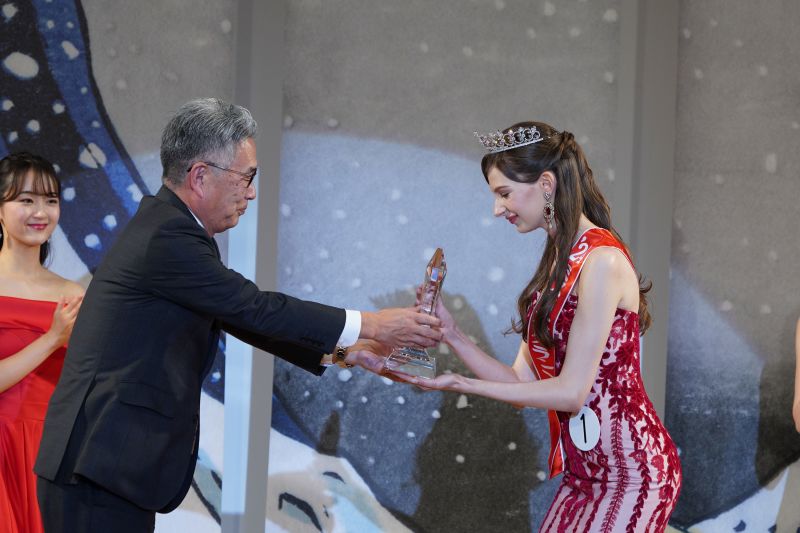
Debating Beauty: The Controversy of Miss Nippon 2024

The recent crowning of a Ukrainian-born model as Miss Nippon has sparked a heated debate on cultural identity, beauty standards, and the definition of Japanese beauty. Karolina Shiino's victory has brought to light the complexities of ethnicity, nationality, and representation in modern Japan, igniting discussions on diversity, acceptance, and the evolving concept of beauty in a homogenous society.
The Miss Nippon Controversy
The recent Miss Nippon contest, which traditionally awards the title to the contestant representing the 'Foremost Beauty of All Japanese Women,' has stirred controversy with the crowning of Karolina Shiino, a Ukrainian-born model with European heritage. This decision has raised significant questions about beauty standards and what it truly means to be Japanese in a culturally diverse world.
Ukrainian-born model Karolina Shiino was crowned Miss Nippon on Monday.
Karolina Shiino, a naturalized citizen who has lived in Nagoya since she was 5 years old and speaks fluent Japanese, expressed her happiness at being recognized as a Japanese person following her victory. Her win has brought attention to the challenges faced by individuals with differing appearances and has sparked discussions on the inclusive nature of Japanese identity. Shiino's victory has shed light on the evolving landscape of diversity and the need for acceptance in contemporary Japanese society.
Karolina Shiino accepts the Miss Nippon trophy.
The Concept of Japanese Beauty
The controversy surrounding Miss Nippon 2024 has ignited debates on the concept of Japanese beauty and the criteria for representing the country's beauty ideals. While some have applauded Shiino's love for Japan and her embodiment of the 'Japanese spirit of harmony,' others have questioned whether someone without Japanese ancestry can truly embody the country's beauty standards. Discussions on racial discrimination, modern beauty values, and the representation of Japanese beauty ideals have emerged, highlighting the complexities of cultural identity and ethnicity in the context of beauty pageants.
Karolina Shiino (center), the winner of Miss Nippon 2024, poses with other contestants at the pageant in Tokyo, Japan, on Jan, 22, 2024.
Shiino's victory comes almost a decade after Ariana Miyamoto, the first biracial contestant to be crowned Miss Universe Japan, challenged traditional beauty norms and represented Japan on the global stage. The evolving definition of Japanese beauty and the representation of diversity in beauty pageants have become central themes in the ongoing discourse surrounding Miss Nippon and its implications for cultural inclusivity and acceptance.
The Evolution of Miss Nippon
The history of the Miss Nippon contest, dating back to its inaugural competition in 1950, reflects the evolving standards of beauty and cultural representation in Japan. The decision to revive the pageant in 1967 marked a new era of beauty and cultural expression, as the contest aimed to celebrate 'hard-working, yet humble, Japanese women with a strong sense of consideration for others.' The legacy of Miss Nippon and its role in shaping beauty ideals and cultural representation in Japan have been reexamined in light of the recent controversy, sparking reflections on the contest's historical significance and its relevance in the modern era.
As Miss Nippon continues to navigate the complexities of cultural identity, diversity, and beauty standards, the contest's role in promoting cultural exchange and understanding remains a topic of ongoing discussion. The Miss Nippon Association's commitment to honoring the diversity and representation of contemporary Japanese women has become a focal point in the broader dialogue on beauty, identity, and inclusivity in today's society.










